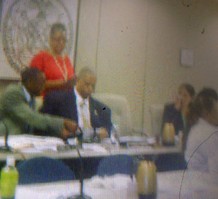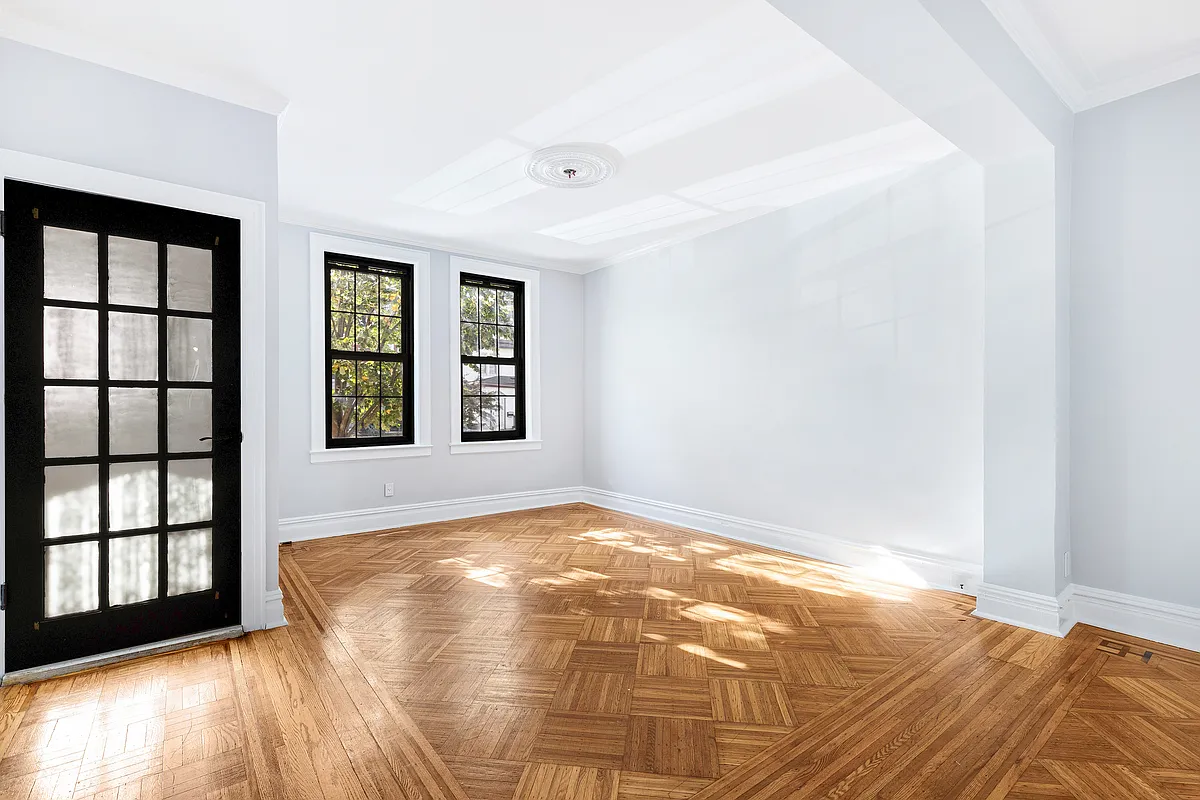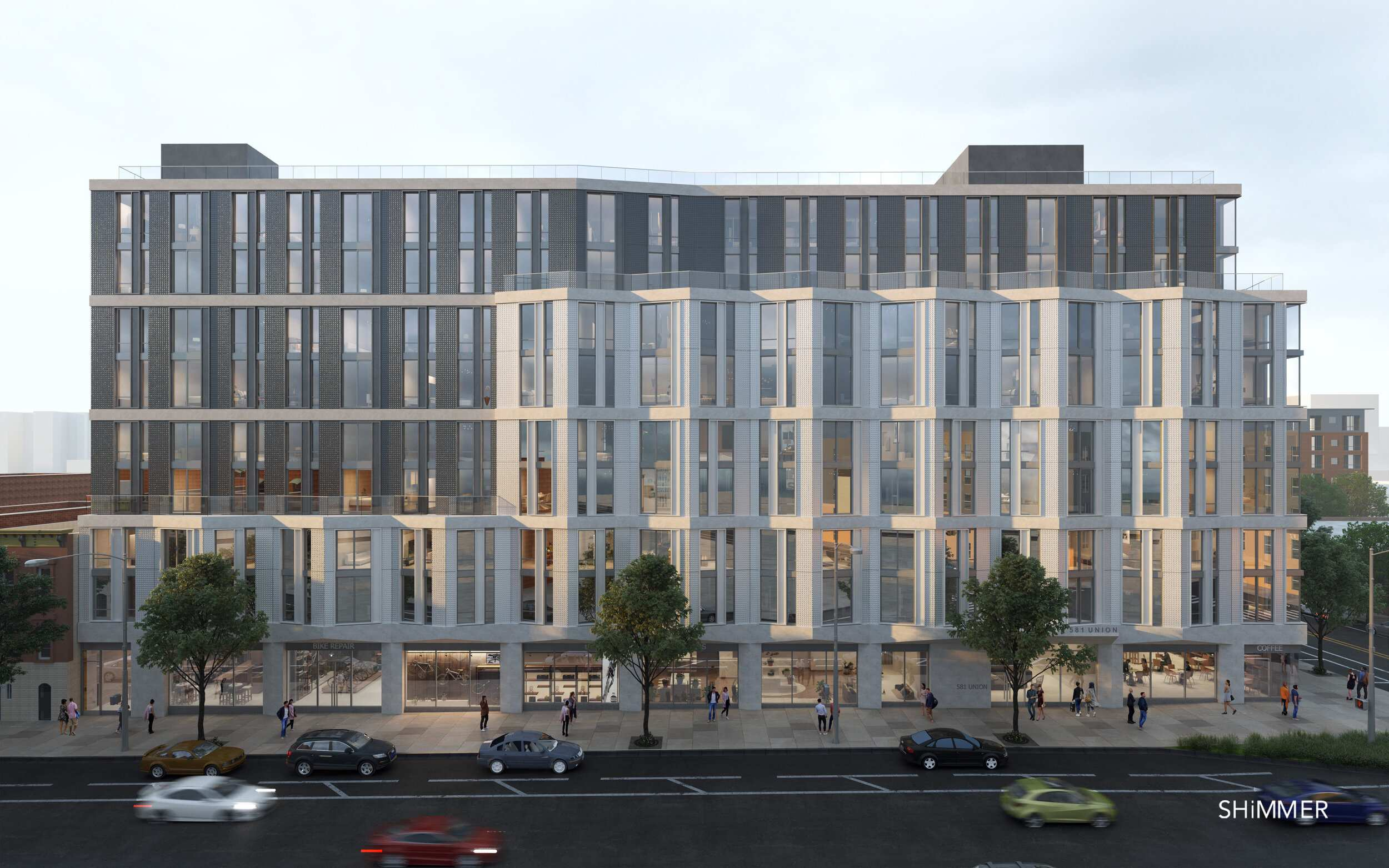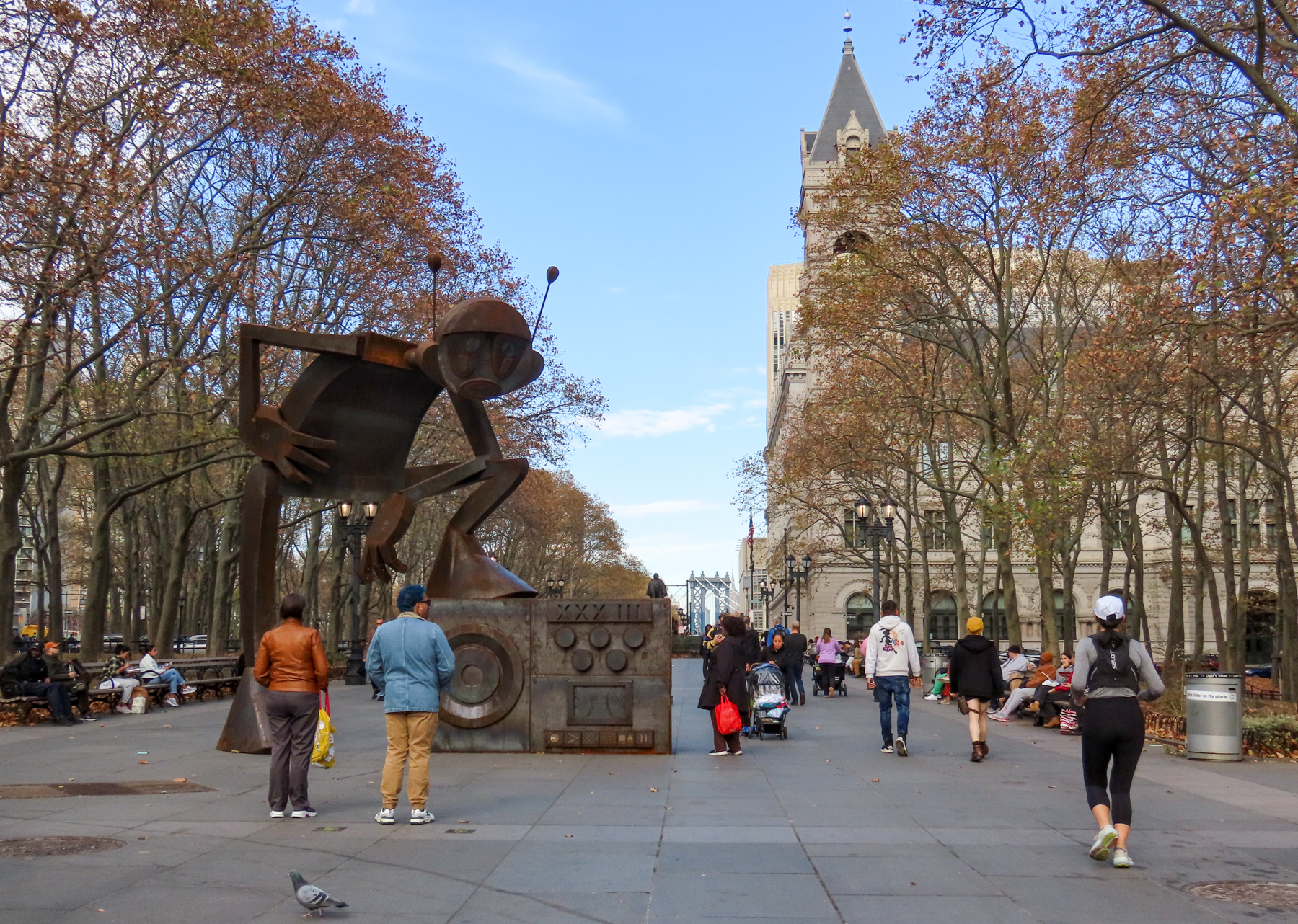Opening Shots Fired With Bills Involving Landmarks Law
Today the City Council’s land-use committee held a meeting to discuss a number of bills involving Landmarks Preservation Commission operations, including some that preservationists believe could severely damage the very essence of the city’s Landmarks Law. The meeting involved a great deal of political theater, as at least 20 Councilmembers made appearances, and several spoke…

 Today the City Council’s land-use committee held a meeting to discuss a number of bills involving Landmarks Preservation Commission operations, including some that preservationists believe could severely damage the very essence of the city’s Landmarks Law. The meeting involved a great deal of political theater, as at least 20 Councilmembers made appearances, and several spoke on the bills that they had sponsored. Near the beginning of the meeting, which lasted more than two-and-a-half hours, the Landmarks Preservation Commission released an official statement on a number of the bills, which read, in part: “[T]hese bills, taken together, would significantly alter the discretionary, flexible and nuanced process that the Charter and the Landmarks Law left in the hands of a capable and expert agency. Establishing rigid timelines and processes with respect to RFEs [Requests for Evaluations] would make it extremely difficult for the Commission to address changing conditions, set and adjust priorities and respond to true emergency situations.” And after that, the fun began! On the jump, commentary given by several of the Councilmembers introducing the bills, including a snipe from Councilmember Jessica Lappin asking the LPC, “how is that going to overwhelm you?”
Today the City Council’s land-use committee held a meeting to discuss a number of bills involving Landmarks Preservation Commission operations, including some that preservationists believe could severely damage the very essence of the city’s Landmarks Law. The meeting involved a great deal of political theater, as at least 20 Councilmembers made appearances, and several spoke on the bills that they had sponsored. Near the beginning of the meeting, which lasted more than two-and-a-half hours, the Landmarks Preservation Commission released an official statement on a number of the bills, which read, in part: “[T]hese bills, taken together, would significantly alter the discretionary, flexible and nuanced process that the Charter and the Landmarks Law left in the hands of a capable and expert agency. Establishing rigid timelines and processes with respect to RFEs [Requests for Evaluations] would make it extremely difficult for the Commission to address changing conditions, set and adjust priorities and respond to true emergency situations.” And after that, the fun began! On the jump, commentary given by several of the Councilmembers introducing the bills, including a snipe from Councilmember Jessica Lappin asking the LPC, “how is that going to overwhelm you?”
The bills that most concerned preservationists, as noted yesterday, were a package introduced by Councilmembers Jessica Lappin, Brad Lander and Dan Garodnick that seek to set limitations on how long requests for evaluations can processed. Councilmember Lander’s quotes on the subject included “I would love to have no deadlines” and asked the LPC why they felt having deadline to respond to requests would be damaging. The LPC responded by saying that they already have a process for responding to requests and have no way of controlling the number of requests they get at any given time. So, for example, if they have RFEs for 20 individual landmarks, an 800-building historic district and a 10-building historic district plopped on them at the same time, it would be impossible for them to respond to all of those in a timely manner in which current processes are followed. With reference to this, Councilmember Lappin said the following at one point: “The concept that you don’t have enough time to respond to the RFEs makes no sense to me. How is that going to overwhelm you?” Meanwhile, two other bills introduced by Councilmember Leroy Comrie also set off preservation alarm bells, as the Historic District Councils put it, in that one “mandates City Planning Commission to analyze economic impact of designation on the development potential of proposed landmark and instructs City Council to strongly regard this analysis in their deliberations. The bill also requires the LPC to issue very detailed draft designation reports early in the public hearing process and promulgate rules for historic districts immediately after designation” and the other “deliberately misconstrues the economic value of landmark designation by emphasizing the false value of ‘property strictly as development.’ By enabling the sole criteria of economic value to be the highest use of a site, the bill strives to denigrate the economic value of landmark designation to property value.” The LPC’s official response to the latter bill reads, in part, that “it would significantly delay formal, public consideration of a building or district because it requires that a detailed draft designation report be created prior to calendaring.” In the end, the meeting was mostly just theater and posturing, but Councilmember Tish James got a round of applause with the following comment: “If in fact everyone wants to talk about timeliness…we at the City Council need to give the LPC more money to do that work.” Although more than 50 regular ol’ citizens signed up to speak, we did not stay to watch their statements.









What's Your Take? Leave a Comment